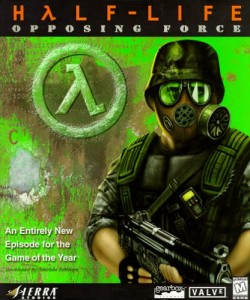 Something I’ve wanted to do for a while is a chronological re-read of the Stephen King oeuvre, now that it is complete. (Admittedly, it’s not complete, what with him still publishing a book or two per year. But he claimed it was complete with the finale of the Dark Tower series, and I have no problem with that. Like, before he was working on a decades-long masterpiece, and now that he’s finished it he considers himself a hobbyist with a good publisher, or something. Whatever works for the guy, I guess.) For various reasons that I don’t feel like getting into, this will probably not be that re-read. But it will do for a stand-in until the real thing comes along.
Something I’ve wanted to do for a while is a chronological re-read of the Stephen King oeuvre, now that it is complete. (Admittedly, it’s not complete, what with him still publishing a book or two per year. But he claimed it was complete with the finale of the Dark Tower series, and I have no problem with that. Like, before he was working on a decades-long masterpiece, and now that he’s finished it he considers himself a hobbyist with a good publisher, or something. Whatever works for the guy, I guess.) For various reasons that I don’t feel like getting into, this will probably not be that re-read. But it will do for a stand-in until the real thing comes along.
So, I read Carrie. Perhaps that’s insufficiently purist of me, and I ought to have been snagging them in order of the short story publication prior to them being put in collections, or some such thing. I’ll see if I can’t find a way to sleep at night. Anyhow, Carrie, for people who have been unaware of popular literature or film for the past thirty years, is the story of the unexpected rise and subsequent terrifying plummet of a previously unpopular high school girl, with collateral damage including the graduating senior class and most of a town. Because what her tormentors failed to take into account was her latent telekinesis.
It’s really not hard to see how King became so popular so fast. The themes might be a little trite (the difficulty of adolescence for everyone involved, the dangers of unchecked fanaticism, revenge fantasies brought to lurid life) and the symbolism might be a little heavy-handed (the girl who everyone made fun of for making it to sixteen without ever having had, or even heard of, her first period is brought low by pouring a bucket of pig blood on her? For God’s sake!), but they’re also vivid and timeless. Unless you had the perfect high school experience, it’s impossible not to feel some sympathy for Carrie’s plight, and unless you’re clinically insane, it’s impossible not to feel true horror for her family situation. (And if you did have the perfect high school experience or are clinically insane, then you still have a couple of the good guy high school students or Carrie’s mother, respectively, to identify with.)
My favorite theme, though, is one that echoes throughout almost all of King’s work, from the microcosm of a small Maine town like Chamberlain to the macrocosms of our entire planet or even the cosmology upon which it lies. Everything eventually fails and fades. Sometimes violently, via an angry telekinetic girl experiencing a psychotic break who sets off a series of explosions that are sufficient to physically destroy a high school and an entire downtown area, and sometimes gradually over time like a winding down clock. But it always happens sooner or later, and you can find hints of it in almost everything the man has written.
But all of that aside, I think the most amusing surprise was discovering that Stephen King’s first novel owes quite a bit more to science fiction than horror. Who knew?
 Some time ago, there was a new Star Wars movie coming out. I’d been burned by the series a bit, if not as badly as some, so I was looking forward to it still, but guardedly. Meanwhile, the Joss Whedon movie,
Some time ago, there was a new Star Wars movie coming out. I’d been burned by the series a bit, if not as badly as some, so I was looking forward to it still, but guardedly. Meanwhile, the Joss Whedon movie, 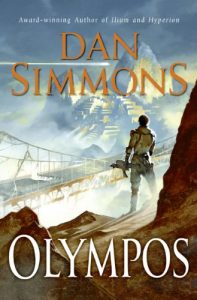 Short Answer:
Short Answer: 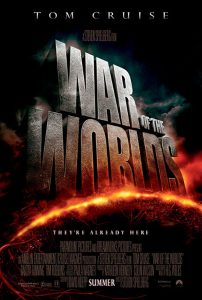 Spielberg has still got it. …well, sort of. If you want a special effects-laden summer extravaganza, of the type that Jerry Bruckheimer will try to sell you every year or so, Spielberg is definitely the top tier guy. From the moment Tom Cruise sees figurative storm clouds on the horizon until nearly the moment that the credits roll, well, critics use words like eye-popping, and I have to say that it applies.
Spielberg has still got it. …well, sort of. If you want a special effects-laden summer extravaganza, of the type that Jerry Bruckheimer will try to sell you every year or so, Spielberg is definitely the top tier guy. From the moment Tom Cruise sees figurative storm clouds on the horizon until nearly the moment that the credits roll, well, critics use words like eye-popping, and I have to say that it applies.  I’m probably not done yet or anything, but my spate of first-person shooters is at least slowing down a bit. Which is good, because there’s lots else I want to play, but since there’s already both
I’m probably not done yet or anything, but my spate of first-person shooters is at least slowing down a bit. Which is good, because there’s lots else I want to play, but since there’s already both 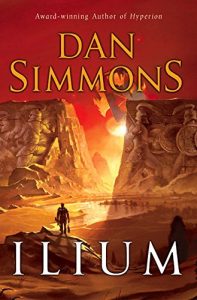 The problems with having
The problems with having 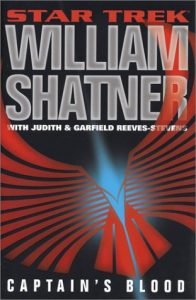 Along with some equestrian obsession I don’t fully understand and a successful re-invention of himself as a kitsch icon, Bill Shatner (yes,
Along with some equestrian obsession I don’t fully understand and a successful re-invention of himself as a kitsch icon, Bill Shatner (yes, 